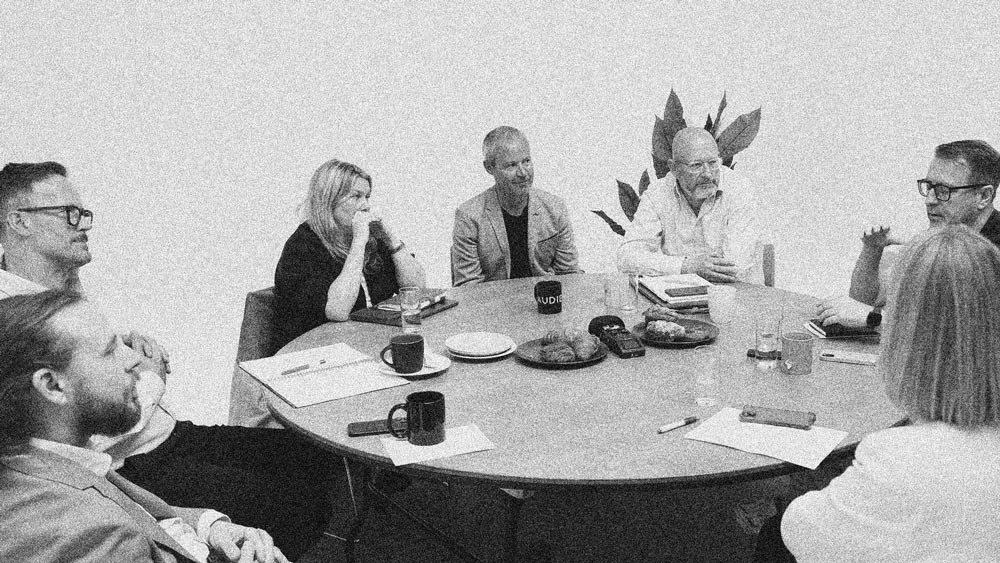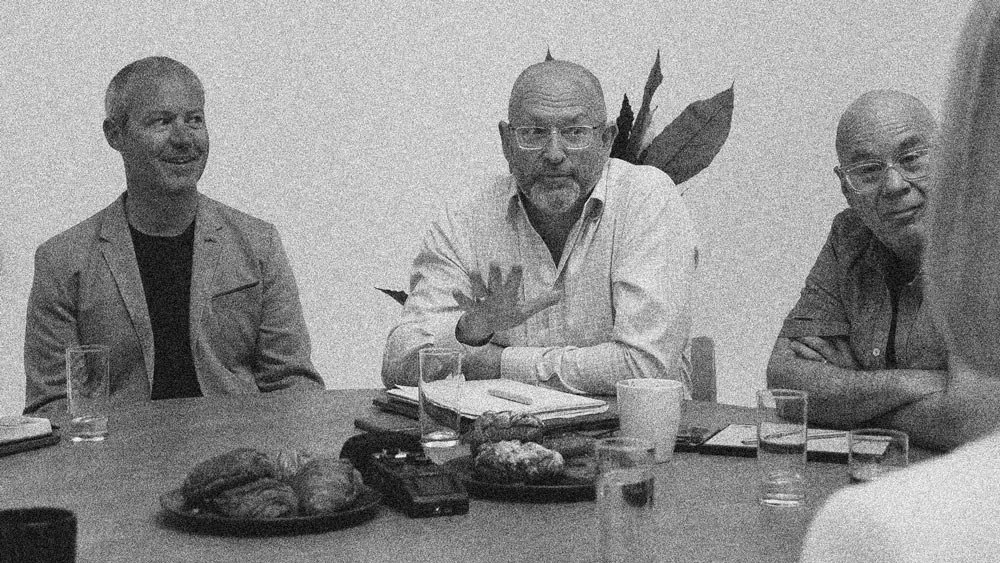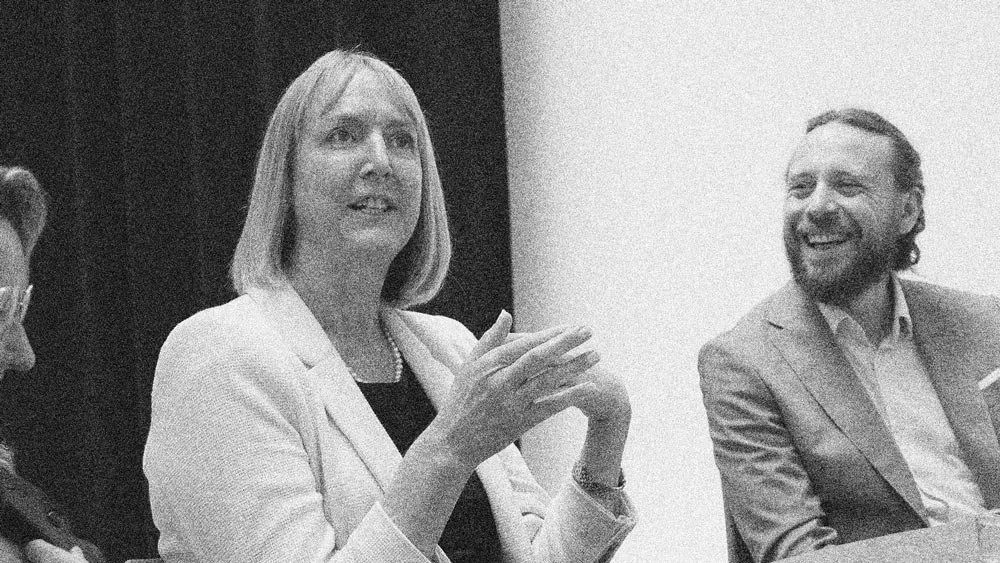The death of relationship selling: How professional services firms are rewriting the rules of success
We recently gathered ten professional services leaders at TYX Studios for a brutally honest conversation about the challenges keeping them up at night. What they shared wasn't just concerning - it revealed an entire industry in the midst of transformation.
The headline? The relationship-based model that built this sector is dying. And what's replacing it is forcing leaders to completely rethink how they win, retain talent, and stay relevant.
The procurement revolution nobody asked for
"It used to be about relationships. You'd build a relationship with the supplier, you'd build a long-term relationship... But now it's become much more commoditised."
This single observation, from a seasoned agency leader, captures the seismic shift happening across professional services. Procurement departments have systematically dismantled the relationship-driven model that defined success for decades.
The impact is stark:
Sales cycles have extended by months as formal processes replace handshake agreements
Retained relationships are being replaced by project-based engagements
"Ghosting" has become the norm in client communications
Differentiation is harder when everything is judged on spreadsheet comparisons
Yet some firms are thriving despite these headwinds. How?
The agility advantage
One roundtable participant built an £8 million consultancy with just 2.5 full-time employees. Their secret? Speed as a differentiator. "When people are saying, okay, we need to bring an expert, I can definitely turn around in 24 hours and get them going." Whilst large competitors take weeks navigating approval processes, they're already delivering value.
Your best people are leaving (and it's not about money)
"All consultants right now are bleeding because we're losing a lot of subject matter experts. They didn't want to be part of politics."
The great talent exodus isn't about compensation - it's about freedom. Subject matter experts are abandoning large firms in unprecedented numbers, choosing autonomy over politics, impact over hierarchy, and flexibility over the false promise of security.
This creates a paradox. Large firms have resources to invest in innovation but lack the organisational agility to deploy it effectively. Meanwhile, smaller competitors are capturing market share by offering top talent something money can't buy: the ability to focus on meaningful work rather than navigating bureaucracy.
The most successful response? Treat contractors like family.
One participant achieved remarkably low contractor churn by creating genuine community: "We are one family, meaning that if one has a problem, everyone has to help. And as a contractor, you really miss that because you're kind of... it's me, myself and I."
The AI question everyone's avoiding
Here's an uncomfortable truth that emerged from our discussion: Something like 10% of businesses say they use AI, but 90% of employees do.
Your people are already using AI tools. The question isn't whether to adopt AI - it's whether you'll lead the transition or scramble to catch up after governance failures force your hand.
The early adopter advantage
One roundtable participant built an AI team three years ago, positioning the technology as an enhancement to human expertise rather than a replacement. The result? They became trusted advisors helping clients optimise their own AI adoption - opening entirely new revenue streams whilst competitors debated policy documents.
The firms winning with AI share common principles:
They start with problems, not tools
They maintain human connection at the centre
They establish clear governance before issues emerge
They position AI as serving client needs, not replacing people
Culture isn't a perk - it's your competitive advantage
"Your brand is what people say about you when you're not in the room."
In an industry where your primary assets walk out the door every evening, culture has emerged as the single most powerful differentiator. But not the forced fun, ping-pong table variety - authentic culture that people genuinely want to be part of.
The most innovative approach we heard? A "Future Leaders Board" - a shadow board where junior staff discuss the same subjects as leadership and provide reverse mentorship. "They can challenge us... And they should... they might have the answer."
This democratic approach to culture building achieved remarkable results. When one firm invited 90 people to collaboratively define company values through post-it notes, "people would take these posters and they would write down their own three words... And they would put that on their monitor... The whole business aligned to it by themselves."
No mandate required. No forced adoption. Just genuine engagement.
The hybrid work paradox
Four years after COVID upended working patterns, firms still struggle to balance flexibility with effectiveness. The challenge? "Learning from osmosis" - overhearing conversations, observing experienced professionals, picking up cultural norms - is difficult to replicate virtually.
The solution isn't mandating office returns. It's creating purposeful rather than arbitrary reasons to gather.
One firm "took out half a floor of desking and made it into a social breakout space... And then far more small meeting rooms, individual breakout areas." They recognised the office needed to evolve from a place you had to be, to a place you wanted to be.
The flexibility paradox
Flexible working is non-negotiable for talent retention. Yet firms that embrace full remote struggle to maintain culture and develop junior talent. The firms succeeding thread this needle by designing offices for collaboration and connection, not just desk space.
What happens next
The professional services sector faces its most significant transformation in decades. The traditional model - leveraging junior people doing routine work - is being dismantled by AI. Entry-level roles must become immediately strategic. Training pathways need complete reimagining.
Yet within these challenges lie extraordinary opportunities for leaders willing to embrace change:
Agility trumps scale - Quick response beats traditional size advantages
Authenticity beats perfection - Genuine culture creates sustainable competitive edges
Empowerment outperforms control - Trust achieves better results than micromanagement
Networks beat hierarchies - Orchestrating expertise creates more value than controlling it
The firms that thrive won't be the largest or most established. They'll be the ones that adapt their approach whilst maintaining commitment to client success and human development.
Read the full story
This article barely scratches the surface of what we uncovered in our roundtable discussion. The full white paper dives deeper into:
Specific strategies for fighting back against procurement dominance
New business models emerging to replace traditional leveraging
The talent architecture revolution reshaping how firms organise
Leadership approaches for the contractor economy
Investment priorities based on patterns of success
Download "The Elephant in the Boardroom: How professional services leaders are rewriting the rules of success in an age of disruption" to get the complete insights, additional case studies, and actionable frameworks you can apply immediately.
The elephant isn't any single challenge - it's the recognition that fundamental change is underway and success requires active adaptation rather than passive hope.
For those willing to embrace this change, the opportunities have never been greater.
About Supo:
Supo provides people-first intelligence software for professional services firms, helping businesses maximize profit and motivate their people through powerful, AI-enabled business intelligence dashboards. By connecting over 500+ platforms and providing real-time data analysis, Supo helps firms make better data-driven decisions about their profit, projects, and people.
For more information about Supo: www.supo.co.uk



